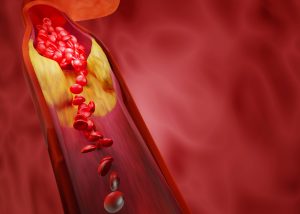Genetic diseases can affect anyone, and in Singapore, certain genetic disorders are more prevalent due to the country’s diverse population. Let’s dive into some of the most common genetic diseases in Singapore, and learn about the latest research in this field.
 Sickle Cell Disease
Sickle Cell Disease
Sickle cell disease is an inherited blood disorder that affects the red blood cells, causing them to become rigid and shaped like sickles. This can lead to blocked blood vessels, pain, and other health complications. While sickle cell disease is more common in African and African-American populations, it also affects people of Malay and Indian descent in Singapore.
According to a study published in the Journal of Human Genetics, the incidence of sickle cell disease in Singapore is approximately 1 in 5,500 live births. However, early detection and treatment can help manage the symptoms and improve quality of life for those with sickle cell disease.
Thalassemia
Fragile X Syndrome
Fragile X syndrome is a genetic disorder that affects the X chromosome and causes intellectual disability, social anxiety, and other behavioral problems. While it affects both genders, it is more common in males.
The prevalence of fragile X syndrome in Singapore is approximately 1 in 4,000 males, according to a study published in the Journal of Autism and Developmental Disorders. While there is no cure for fragile X syndrome, early intervention and therapy can improve outcomes and quality of life for those affected.

Is Reversing Genetic Diseases Possible?
While genetic diseases are caused by changes in our DNA, there are still ways to prevent the inheritance and manage the symptoms of these diseases. For instance, pre-marital genetic testing and counseling can help identify carriers of genetic diseases and prevent the transmission of these diseases to future generations.
Additionally, advancements in genetic research and technology have led to the development of gene therapy, which involves replacing or modifying defective genes to treat or cure genetic diseases. While gene therapy is still in its early stages, it holds promise for the future of genetic disease treatment.
In conclusion, while genetic diseases can be challenging, understanding their prevalence and taking preventative measures can help manage the symptoms and improve quality of life for those affected. Through continued research and education, we can work towards a future where genetic diseases are a thing of the past.
If you suspect that you or your loved ones are at risk for any of these diseases, please don’t hesitate to speak with your doctor about it – getting ahead of it is key! If you would like to speak with one of our doctors, please contact us today!
Read our other articles here.





